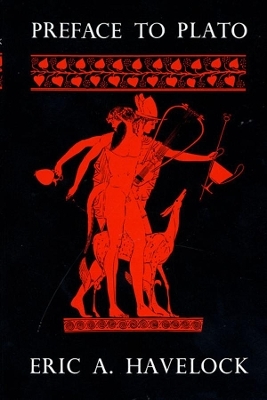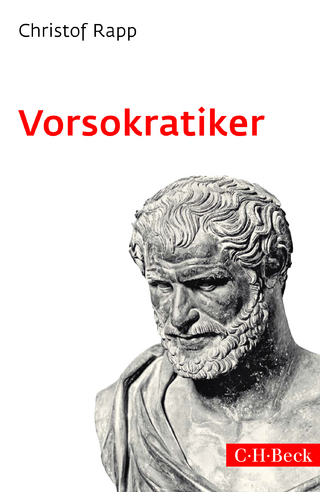
Preface to Plato
Seiten
2006
The Belknap Press (Verlag)
978-0-674-69906-9 (ISBN)
The Belknap Press (Verlag)
978-0-674-69906-9 (ISBN)
Plato's frontal attack on poetry has always been a problem for sympathetic students, who have often minimized or avoided it. Beginning with the premise that the attack must be taken seriously, Eric Havelock shows that Plato's hostility is explained by the continued domination of the poetic tradition in contemporary Greek thought.
Plato’s frontal attack on poetry has always been a problem for sympathetic students, who have often minimized or avoided it. Beginning with the premise that the attack must be taken seriously, Eric Havelock shows that Plato’s hostility is explained by the continued domination of the poetic tradition in contemporary Greek thought.
The reason for the dominance of this tradition was technological. In a nonliterate culture, stored experience necessary to cultural stability had to be preserved as poetry in order to be memorized. Plato attacks poets, particularly Homer, as the sole source of Greek moral and technical instruction—Mr. Havelock shows how the Iliad acted as an oral encyclopedia. Under the label of mimesis, Plato condemns the poetic process of emotional identification and the necessity of presenting content as a series of specific images in a continued narrative.
The second part of the book discusses the Platonic Forms as an aspect of an increasingly rational culture. Literate Greece demanded, instead of poetic discourse, a vocabulary and a sentence structure both abstract and explicit in which experience could be described normatively and analytically: in short a language of ethics and science.
Plato’s frontal attack on poetry has always been a problem for sympathetic students, who have often minimized or avoided it. Beginning with the premise that the attack must be taken seriously, Eric Havelock shows that Plato’s hostility is explained by the continued domination of the poetic tradition in contemporary Greek thought.
The reason for the dominance of this tradition was technological. In a nonliterate culture, stored experience necessary to cultural stability had to be preserved as poetry in order to be memorized. Plato attacks poets, particularly Homer, as the sole source of Greek moral and technical instruction—Mr. Havelock shows how the Iliad acted as an oral encyclopedia. Under the label of mimesis, Plato condemns the poetic process of emotional identification and the necessity of presenting content as a series of specific images in a continued narrative.
The second part of the book discusses the Platonic Forms as an aspect of an increasingly rational culture. Literate Greece demanded, instead of poetic discourse, a vocabulary and a sentence structure both abstract and explicit in which experience could be described normatively and analytically: in short a language of ethics and science.
Eric A. Havelock was Sterling Professor of Classics, Emeritus, at Yale University.
PART ONE: The Image-Thinkers 1. Plato On Poetry 2. Mimesis 3. Poetry as Preserved Communication 4. The Homeric Encyclopedia 5. Eric as Recorded as Record Versus Epic as Narrative 6. Hesiod on Poetry 7. The Oral Sources of the Hellenic Intelligence 8. The Homeric State of Mind 9. The Psychology of the Poetic Performance 10. The Content and Quality of the Poetised Statement PART TWO: The Necessity of Platonism 11. Psyche or the Separation of the Knower From The Know 12. The Recognition of the Known as Object 13. Poetry as Opinion 14. The Origin of the Theory of Forms 15. 'The Supreme Music is Philosophy'
| Erscheint lt. Verlag | 10.6.2006 |
|---|---|
| Verlagsort | Cambridge, Mass. |
| Sprache | englisch |
| Maße | 140 x 210 mm |
| Gewicht | 431 g |
| Themenwelt | Literatur ► Essays / Feuilleton |
| Geisteswissenschaften ► Geschichte | |
| Geisteswissenschaften ► Philosophie ► Philosophie Altertum / Antike | |
| ISBN-10 | 0-674-69906-8 / 0674699068 |
| ISBN-13 | 978-0-674-69906-9 / 9780674699069 |
| Zustand | Neuware |
| Informationen gemäß Produktsicherheitsverordnung (GPSR) | |
| Haben Sie eine Frage zum Produkt? |
Mehr entdecken
aus dem Bereich
aus dem Bereich
mit Sokrates, Seneca, Platon & Co. im Gespräch
Buch | Hardcover (2023)
FinanzBuch Verlag
18,00 €


